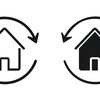Should You Sell Your House and Rent in Retirement?

Deciding whether to sell your home and rent in retirement is a crucial choice. By weighing financial, lifestyle, and emotional factors, retirees can determine the best path for their future.
Key Takeaways:
- Selling your home can provide flexibility and free up equity for re-investment, but comes with potential rent volatility and emotional challenges.
- Re-investment options include working with financial advisors, investing in low-risk portfolios, or renting out smaller properties.
- Lifestyle changes, such as moving closer to family or relocating to a warmer climate, may make renting a more attractive option for retirees.
- Retirees should carefully evaluate their financial goals and lifestyle needs before making a decision.
For most Canadians, approaching retirement can be an equally exciting and nerve-wracking experience. Given the rising cost of living across Canada, many soon-to-be retirees are left wondering if they have enough money to finance their upcoming retirement. One solution that has grown in popularity is to take advantage of inflated home prices by selling your home and renting a lower-cost property instead, living off the surplus. In this guide, we seek to answer the pivotal question: should you sell your house and rent in retirement in Canada?
Weighing the Pros and Cons of Selling
Before deciding whether or not to sell, it is important to weigh the associated pros and cons. Here are some common pros of selling your home and renting instead:
- Re-Investment: with the help of a financial advisor, you may be able to re-invest the cash you earn from the sale of your home , and generate favourable returns over the course of your retirement.
- Flexibility: if you are looking to move to a warmer climate, or closer to your children, renting allows you to move easily and repeatedly, as you see fit—providing more flexibility than a traditional home
- Property Taxes: home sale prices may rise yearly in Canada, but so do property taxes. By selling your home, you save yourself the future property tax payments you would have otherwise undertaken
- Burden of Responsibility : if you are a homeowner, you are responsible for any repairs, maintenance, and utilities associated with your property. When you rent, oftentimes these responsibilities get shifted onto your landlord. As you get older, you may want to consider taking these considerations off your plate.
On the flip side, here are some potential cons of selling your home:
- Lost Value: by selling your home, you will miss out on the potential price appreciation it could have seen in later years. The key here is to weigh the potential returns of keeping your home against the potential returns of alternative investments (e.g. selling your home and investing the cash in the stock market).
- Rent Volatility: by renting instead of owning, your monthly expenses may fluctuate every time you renew your rental contract, as landlords may continuously raise the rent on your property.
- Emotional Repercussions : many people are emotionally attached to the home they raised their children in. It can be an emotionally difficult decision to sell your family home in order to begin renting.
Should you sell your house and rent in retirement?
There is no definitive “yes” or “no” answer. Selling your house and renting in retirement can offer flexibility and financial benefits, but the decision depends on your lifestyle needs, emotional attachment to your home, and potential rent fluctuations. Carefully evaluate both options before deciding.
Financial Implications of Selling vs. Renting
Should you sell your house and live off interest? Well, it depends. Some financially-savvy Canadians may choose to sell their home and re-invest their earnings to generate even better returns in the future. But that may not be the right choice for everyone. Re-investment can seem intimidating, especially if you have no prior experience in the stock market.
If you find yourself interested in selling your home and re-investing, but are put off by the intimidating nature of the stock market, you may want to consider a few different alternatives. The first thing to consider is whether or not you want to work with a financial advisor. Most major Canadian banks offer financial advising services, or managed investment accounts. In these cases, you don’t need to know anything about the market, as the experts can walk you through every individual step.
If you prefer to have a little more autonomy in your investment strategy, you could consider investing into low-risk portfolios such as index funds or ETFs. You could also purchase a smaller property to rent out to others and generate revenue. If your current home is zoned correctly for a double unit, you could also consider keeping your home and renting out the second unit. In this case, you would be able to write off any utilities or maintenance and receive some of your taxes back.
Lifestyle Considerations in Retirement
One of the biggest debates framing the renting vs. owning question is around when seniors should sell their home. The best time to sell your home is often the point at which your lifestyle needs are no longer being met. For instance, couples who wish to move closer to their adult children and grandchildren may appreciate the flexible nature of a rental agreement. Retirees looking to soak up some sun in a warmer region, or move closer to the coastline, may also benefit from selling their home and moving to their desired location as renters.
Regardless of your personal goals or future home aspirations, Clover Mortgage can help. Our expert team of brokers can walk you through all the options available to you, to arm you with the knowledge you need to succeed in the current market. To learn more, contact us today.
FAQ
What age group is most likely to rent?
In Canada, the majority of renters are between the ages of 25 and 35. This demographic is likely to prefer living in large, unaffordable cities like Toronto due to the numerous early career job opportunities available. An increasing lack of affordability amongst more traditional homes combined with a growing trend of delayed family formation further feeds into this trend.
What percentage of Canadians rent?
It is currently estimated that approximately 1 in 3 Canadians rent. Of course, the majority of these assumptions are based on 2021 census data. We may see a shift in the data once the next census is conducted in May 2026.
Who owns the most rental properties?
Most rental properties in Canada are owned by investors. This includes both institutional investors and “mom-and-pop” or individual investors.





